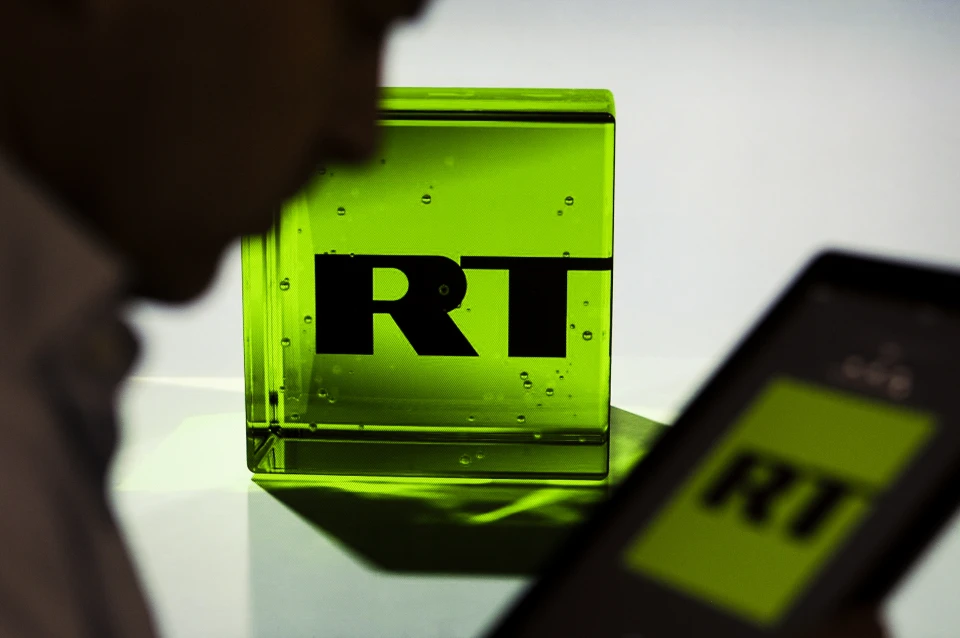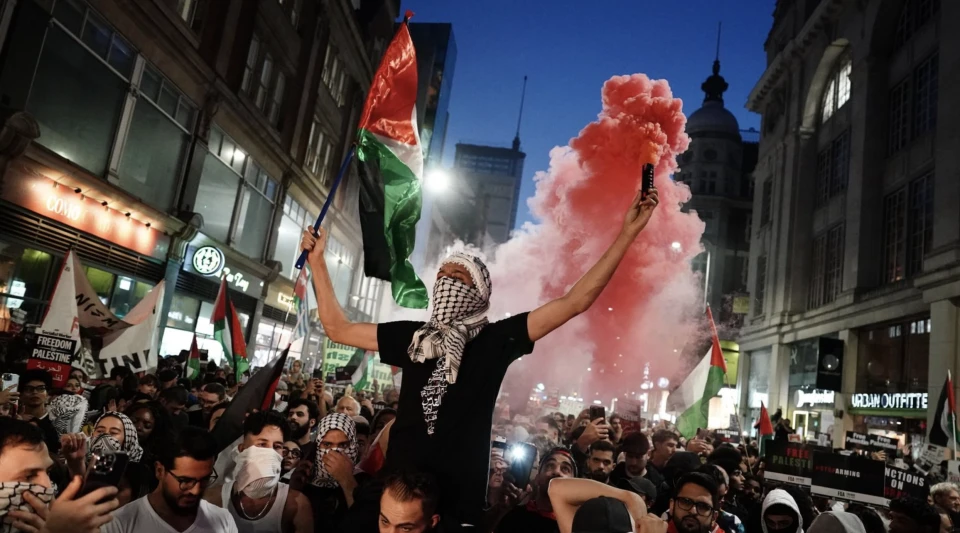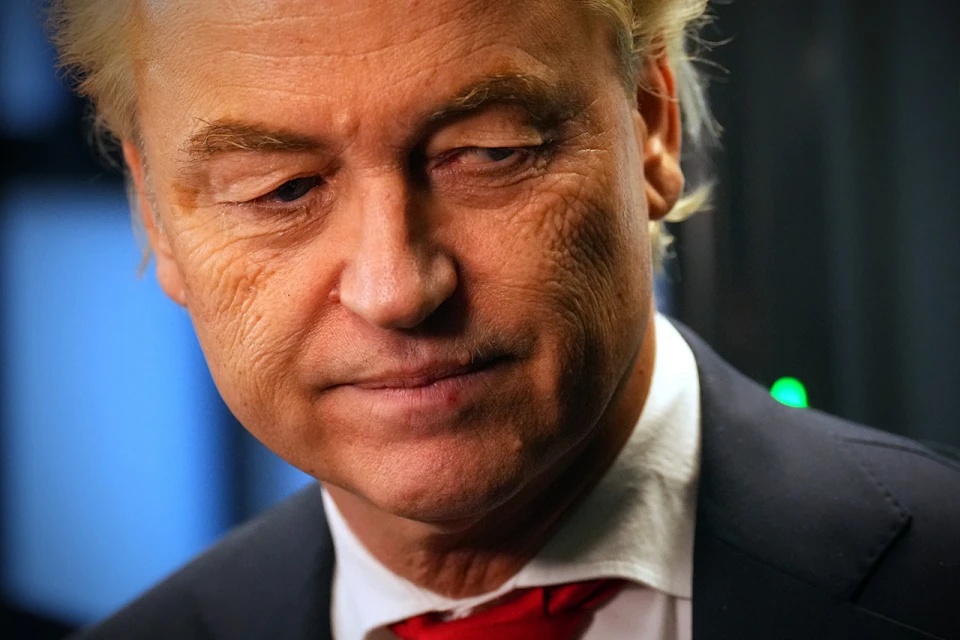
How Russia wages political war in Europe. Conversation with Anton Shekhovtsov
Anton Shekhovtsov, 45, is a PhD candidate in political science who researches far-right movements and authoritarian regimes, with a particular focus on Russia. He heads the Austrian organization Center for Democratic Principles and works at the Central European University in Hungary
The text covers the following topics:
- What is political warfare and when it is used
- The real reasons for Russia's attack on Ukraine
- About Russia's propaganda projects abroad
- The tendency to support radical movements in Europe
- The importance of Western partners supporting Ukraine
Everyone knows the means of conventional warfare: bombs, tanks, etc. If we talk about political warfare, what tools are used?
There are two states in the world: a state of peace and a state of real war. The state of peace is characterized by the use of soft power and traditional democracy, i.e. influence through culture and education. In a state of war, regular troops and weapons are used. But there is also an intermediate position called the gray zone of political war. When a country goes beyond diplomatic relations, but is not yet ready for an armed conflict, economic sanctions, support for anti-systemic political movements, or the involvement of militant activist groups become the tools. The gray zone includes disinformation and propaganda.
It should be added that such methods are used not only by Russians. This strategy is considered acceptable to many Western societies, as political warfare does not cause as many casualties as traditional warfare, but fully responds to a crisis in relations between two or more states.
Does political war necessarily precede traditional warfare, i.e., does it act as an element of preparation for armed confrontation?
Political warfare itself is not a transitional phase to kinetic warfare, but rather an attempt to overcome a crisis and influence a particular nation or group using more peaceful methods. Information is not tanks, bombs or aircraft. Although it is also a weapon in the context of political warfare, and it certainly has its impact, it does not cause as many casualties as kinetic warfare can.
Can we assume that Russia attacked Ukraine with weapons because it failed in its information warfare in Ukraine, and its agents of influence and its disinformation did not work?
For years, Russia has been trying to take control of Ukraine and influence its behavior through political warfare. Here we can add economic pressure and the purchase of entire political projects, disinformation, and the efforts that Russia made to polarize Ukrainian society. It was a classic political war.
However, when Russia realized that it could not force Ukraine to do what it wanted, it launched a kinetic war. If we recall the Cold War: relations between the Western bloc and the Soviet Union and its satellites did not escalate into armed wars. Yes, there were regional confrontations in Korea, Vietnam, and Afghanistan, but they were mediocre, and this is allowed in the definition of a political war.

Photo: Getty Images
You say that Russia is waging a political war in Europe, so it has some influence there. The Russia Today TV channel was widespread. It has been banned in almost all European countries, except, partially, in the Balkans. Did Russia manage to use this instrument of influence?
It is very difficult to determine the effectiveness of various instruments in a political war. Unlike a shell that either hits the target or does not, it is difficult to assess the success of information operations. Yet we see that over the years, Russia has not only continued to sponsor RT (Russia Today) and the important Sputnik news project, but has also increased its funding. This means that, from Russia’s point of view, these tools are successful and effective. However, despite the fact that the European Union and some other states have imposed a ban on RT and Sputnik, it is not difficult to find them, as they have registered to other domain names and continue to operate.
But RT has been removed from Facebook, Twitter, and other social networks, and most importantly, removed from YouTube, where it had the most views. Despite the fact that Russia has other alternative platforms broadcasting in Europe, YouTube has become a major setback in the political war, as Russia has not been able to fully restore its presence on this platform.
Some politicians believe that banning Russians from driving their cars to Europe and living there, as well as abandoning everything Russian: culture, language, and passports, will solve all problems. Is this culture of abolishing Russian enough, and is this concept understood in the West?
The idea of abandoning everything Russian will not work even in those countries that are the biggest supporters of Ukraine and provide a lot of support as a percentage of the population. The bottom line is that the rejection of Russian is about creating a sense of collective guilt for the Russian population, not about understanding individual responsibility.
Western philosophy is based on liberalism and liberal democracy and does not support collective punishment, and the "canсelling" of everything Russian implies exactly that, so this idea is not and will not be welcomed in the West, because it contradicts the individualistic foundation of liberal democracy.
Therefore, we should not expect understanding or explain this to our Western partners.
Liberal democracy has become so "liberal" that it allows supporters of Russian terrorists to take to the streets of Europe and broadcast pro-Russian narratives, accusing Ukraine of anti-Semitism and Nazism. At the same time, when the terrorist group committed horrific crimes in Israel, shooting civilians in the streets, thousands of people came out in support of Palestine and, unfortunately, Hamas (a terrorist group). How is it possible that such a liberal model allows for such a wide range of views and such radicalization in society?
The Israeli political conflict, which is virtually "eternal," has led to different assessments and opinions in European societies. In many countries, such radical pro-Palestinian rallies are banned, but when they do occur, the authorities try not to escalate and not to use force to disperse these rallies and protests.

Indeed, sometimes the slogans that appear at pro-Palestinian rallies are completely unacceptable. However, liberalism implies a broad representation of freedom of speech. We need to understand that every society has its own vulnerabilities and triggers. For the European Union, it is Nazi symbols, because many European countries had a dark past and do not want to repeat it. Therefore, such symbols cause more indignation than Islamist slogans. This must be recognized and understood.
From the news, it seems that there is a rising tide of radical movements in Europe. We can trace the victories of radical right-wing forces in elections in the Netherlands, Finland, and Slovakia. In Germany, radical parties such as Alternative for Germany are gaining popularity. Are radical movements really becoming so popular in Europe, or is it just a way for the media to relay the situation?
In Europe, elections are won by far-right or so-called anti-systemic forces. However, it is difficult to talk about major victories, for example, in the Netherlands, where more than twenty parties competed in the parliamentary elections. Geert Wilders' Party for Freedom received the most votes, despite the fact that 70% of the electorate did not vote for him. They supported completely different parties, but in such a multi-party system, the latter was the most popular. This does not mean that the ideas of this party reflect the views of the entire society.
In general, the popularity of extreme right-wing parties in Europe is partly explained by the fact that the population sees how centrist forces cannot cope with the challenges of globalization and European integration. In particular, many Europeans are dissatisfied with migration processes, especially after 2015-2016, when millions of refugees from Syria, the Middle East and Africa, and now from Ukraine, appeared in Europe. This is one of the factors behind the growing popularity of the far right.
But I would not exaggerate the situation by saying that everything is getting out of control. It is just that in multi-party systems it is difficult to understand the real support of the extreme right or moderate forces.
There is also a process of mainstreaming of the far right as it approaches power. The rhetoric of Wilders in 2023 and Wilders in 2013 is completely different, despite the fact that he has not deviated from his ideological foundation. The same can be said about Marine Le Pen in 2023 and 2015. She has become more "moderate," and her party is defined as one of the leading parties in the upcoming French presidential election, according to opinion polls. This is what allows such right-wing radical parties to receive the support they currently have.

The situation on the frontline does not suggest any quick changes. Everyone is talking about a long war. Does Europe understand this and are they ready to support Ukraine until the end?
The support is maintained. There are assurances from European and NATO leaders that support will continue. However, it is important to consider not only the duration of this support and its ultimate goal, but also the extent to which it will be provided.
If the assistance to Ukraine is limited, it could be argued that it is not there at all. Ukraine has a specific goal: the restoration of sovereignty and territorial integrity, as well as the preservation of the state and the Ukrainian nation.
Putin's regime has made it its historic mission to destroy the Ukrainian state and nation, and it is not even ready to consider the possibility of failure if the price is too high.
Russian propaganda calls the potential accession to NATO the reason for the outbreak of war. Do you think this is partly true?
NATO is not and has not been a problem. Finland has joined NATO, Sweden is joining. The problem for the Putin regime is that Ukraine will never again be part of the Russian civilization project. Ukraine within the Russian civilization project is another humiliated and enslaved Russian region. This is the Putin regime's vision of Ukraine's future, and Putin personally will not back down from it. This is a kind of historical mission for him, and he is ready to pay any price for its realization.
The question is how much the West is willing to pay to prevent Russia from realizing this historical mission, and, of course, to Ukrainian society, how much it is willing to pay to avoid becoming part of the enslaved regions of Russian "civilization."
What will happen to the world if Putin does win and if he achieves his goal?
For Putin, the main task is to destroy Ukraine as a state and a nation. He has tied success in this war to the existence of his own project, Russian civilization. However, the West has also linked its historical civilizational mission to Ukraine's success in this war. The West began the process of incorporating Ukraine into its international, political, and economic structures at the request of Ukraine itself. If Ukraine fails in this war, which is quite possible without sufficient support from Western partners, then this liberal democratic project of the West will be in danger. Putin's regime wants to create the impression that democracy is only about war and conflict. It promotes the idea that it is better to live in an authoritarian society than in a democratic one.
If the West fails to stand up for Ukraine as a democratic country that wants to be part of the community of Western democracies, then it will be a huge blow to the West's reputation. The rhetoric that democracy brings peace will not work, because it is not able to defend the independence and sovereignty of democratic countries.
- News











































